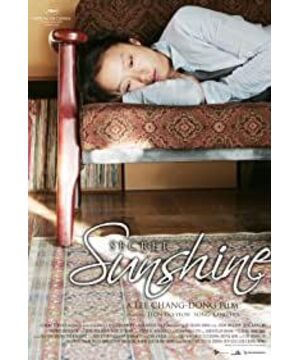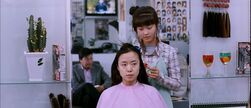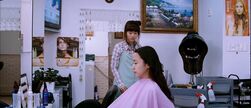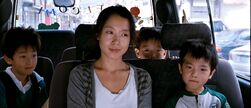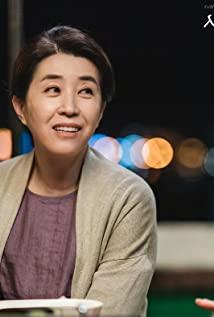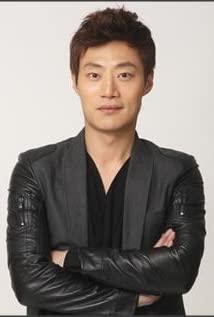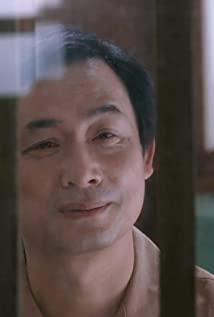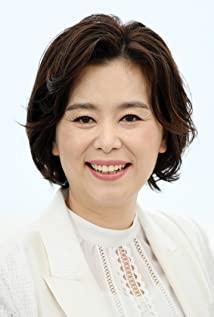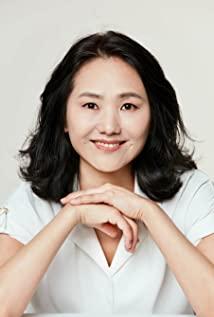The heroine who uttered this sentence revealed the key words, but also lied by taking advantage of the audience's ignorance. This is the basic form in which the heroine operates her life. She said that she moved from Seoul to Miryang because she missed her husband (the key words Seoul, Miryang, husband), but in fact, she wanted to escape the past and start a new life; she said how much her husband loved her and her son (the key words were uttered) Husband, son), in fact, her husband is a scumbag who has failed in business, has a lot of debt, and cheated in his marriage; she said how good she is at playing the piano (the key words piano, music), but in fact the only time she messed up in the movie "Performance"; she wants to invest in Land Land, and she advertises it at parties without concealment (explains the keywords money, wealth, status), but actually lives on insurance money; she mocks Boss Jin for being vulgar (explains the vulgarity The key words are vulgar), but in fact, he was controlled by his vanity, accepted a fake certificate from Boss Jin, boasted that he wanted to invest in Land Land, and finally killed his son.
What influences the tainted quality of the heroine is a kind of psychology of whitewashing peace, because she doesn't want to be seen by others in embarrassment, the way of whitewashing, and she is lying to others (even others are not allowed to refute and expose, such as her younger brother) She said her husband cheated in marriage), she was escaping from herself, she fled from Seoul to Miryang, from reality to religion, from her grumpy father to her husband early (early marriage), from the reality of her husband's cheating to her husband's independence Love your own fantasy. Lying and escaping are both a form of hypnosis, which is why the heroine has such strong emotions towards religion later on and was cured by exaggerated exaggeration. Those gathering scenes are also hypnosis.
The secret sunshine, whether it is the sunshine emitted by the secret, or the secret sunshine (unfortunately I don't understand the original text... I can only rely on Chinese hard YY), it has already exposed the shortcomings of the heroine's "sunshine" identity. A secret for outsiders.
In a certain sense, the whole film is a demonstration (rejection) of the proposition of "Secret Sunshine", so it is asked twice in the film: "What kind of place is Miryang?" Who? Ask a passive bystander who has the highest level of participation and concern for all events - Boss Jin, in terms of story background share, that is, each of our audiences. But it doesn't matter what kind of place Miryang is. If the city of Wujin in "The Furnace" not only reflects the "truth hidden in the fog" literally, but also becomes the epitome of the entire country's legal system in space, then Miryang is only nominal because, as Boss Kim emphasized, Miryang is like every other city where people live the most mundane lives.
The proposition set up by the heroine was overturned, all her secrets were exposed one by one, the key words in her life that she tried to maintain were deleted one by one, and her daily life completely collapsed. "Secret" and "Sunshine" constitute a new proposition: Expose the secret sunshine. The heroine is no longer the bright sunshine, she has become the inescapable secret itself.
But the heroine is by no means shallow, her vanity is a rebound of a strong self-esteem that has been suppressed for a long time, manifested as a desire to control people and things, and an obsessive-compulsive disorder that thinks she is absolutely right. She asked her son to get out of the car and be happy according to her own request. She suggested to the owner of the clothing store that she met for the first time to change the interior decoration. She said to her face that Boss Jin was vulgar (seeing her brother's embarrassed expression at the time), and she went to the trash can by herself. put the ransom. And we often say that what a man deliberately shows is precisely what he lacks most in his heart. Excessive self-esteem is also a stress response to excessive self-esteem. The heroine's inferiority complex lies in the fact that there is always a cloud above her head that forces her to bow her head, so in the last 30 minutes of the movie, the heroine looked up at the sky several times, and said like a demon, "I won't lose to you."
This "you" has multiple identities, and only three can be identified when the heroine muttered to herself after escaping from Boss Jin's house in a hurry. The father who was irritable in childhood and would lock her in the bathroom and punish her, did not marry after marriage. Allow her to go to conservatory, break her personal dream husband, and watch our God in heaven. All three of them have a common identity: a man, and a man who is above the woman (that is, the heroine). In this sense, there are still two "you" identities in the movie, one is the murderer, and the other is the boss Jin who finally got angry. What these men have in common is that they all evoke a pathological surrender of the female protagonist in the form of fear or attachment. The father, the murderer, and the angry boss Kim caused fear (the heroine would be too frightened to look at the murderer when she met the murderer in the corridor, and the heroine ran away in fright after Boss Jin became angry). Husband and God lead to attachment, which is reflected in the typical syllogism in the movie: moving to Miyang - attending church, missing her husband - falling in love with God (the heroine's original words), whitewashing her husband's love - blindly believing in the power of God, Husband cheating in debt - Religious elusiveness and incompetence.
This sentence also echoes the sentence that my brother warned Boss Jin, "My sister doesn't like your type." Boss Jin was at a loss when facing the heroine before he went crazy. It was the man behind her who was watching her, and naturally he couldn't get it. Lady's favorite. What the heroine yearns for is always a man who can make her look up, just like the hand that can calm her down when she is crying.
It is necessary to understand the religion in the movie from this point of view. The heroine chooses religion not only from her inherent servility towards powerful men, but also from her ostrich sense of dealing with crises. She is not an independent person and needs other people (men and opponents). man's empathy) to be her pillar. The heroine's decision to go to the labor camp to forgive the enemy who murdered her son is undoubtedly the practice (and destruction) of religious teachings, but at the same time, it is also a counter-offensive using the power of religion. She wants to "trample" with a higher attitude. The male power that has enslaved her since then, that is, not looking up to men, but to make men look up to her, knowing that those who have the right to forgive others are morally superior. So, when she saw that God (the man in the highest position in the whole film) was still standing above her (God forgave the man before she did), and even the man who was forgiven was standing above her, she undoubtedly suffered the strongest blow.
After this, the heroine finally began to take revenge (just like Jin Funan's rebellious mentality), but she did not pick up the knife (the only time she picked up was to cut herself unintentionally and immediately ran out for help), but chose some Very childish ways, such as stealing things, changing the background music at missionary conferences, smashing glass, and smearing God by seducing the pastor to make himself cheap. Fortunately, the heroine's character has remained intact, and she did not open up to passionate formalism at the end. Although the plot of being overwhelmed and finally contributing infinitely to the blood bag is more exciting, it can be regarded as the most relieved explanation for the audience who is curious or full of sympathy, but there are not so many extreme examples in reality, so the heroine has had enough and made trouble. Enough, all I can do is go home, pick up the scissors and get rid of the ragged hair, and continue to live my life step by step. The last time she looked at the sky, she didn't say a word. Personally, I think she should have accepted Boss Jin in the end, so she put on the dress bought by Boss Jin. When Boss Jin entered her house, he was no longer cautious, but pushed the door confidently.
Therefore, this film has two focus points, one is to examine religion, but more profound and important, is a woman's tragedy, not only a character tragedy, but also a gender-social tragedy.
The sunshine that exposes secrets, in the end, there is nothing in the sunshine, secrets and those who carry them are mercilessly exposed. After exposure, there is no dramatic counterattack, and no epiphany that has gone through thousands of sails. Those tormenting secrets will eventually be blown away by the wind like cut hair, and the tortured will be like wet soil. Dry inch by inch , restore the original appearance.
So, I liked this movie very much, without any rhetoric or exaggeration, but with a profound idea, although I don't plan to watch it again.
Because the cry of the heroine is really real:
heartbreaking.
View more about Secret Sunshine reviews


